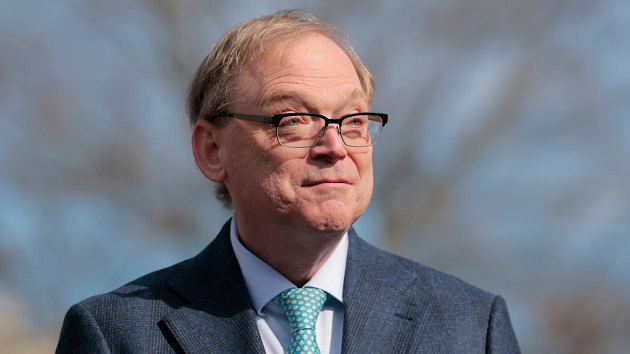
(WASHINGTON) — National Economic Council Director Kevin Hassett defended President Donald Trump’s newly unveiled 50% tariff against Brazil, the United States’ second-largest trading partner, saying the move is part of the administration’s broader global tariff strategy.
Speaking with ABC News’ “This Week” co-anchor Jonathan Karl, Hassett said that the president has the authority to impose new tariffs if he thinks there is a national defense emergency or a national security threat — though Trump’s letter to Brazil highlighted the ongoing criminal case against his political ally, former President Jair Bolsonaro.
“So how is it a national security threat … how Brazil is handling a criminal case against its former president?” Karl asked.
“Well, that’s not the only thing,” Hassett said.
“The bottom line is that what we’re doing absolutely, collectively across every country is we’re onshoring production in the U.S. to reduce the national emergency, that is, that we have a massive trade deficit that’s putting us at risk should we need production in the U.S. because of a national security crisis,” he added.
“But again, as we’ve just established, we have a trade surplus with Brazil, not a deficit,” Karl noted.
“If you look at an overall strategy, if you don’t have an overall strategy for this, then there’ll be transshipping and everything else, and you won’t achieve your objectives,” Hassett said.
Pressed by Karl about Trump’s recent criticism of Federal Reserve Chair Jerome Powell, Hassett echoed the White House’s criticism of recent cost overruns in the renovation of the Fed’s Washington, D.C., headquarters.
“I think that whether the president decides to push down that road or not is going to depend a lot on the answers that we get to the questions that [Office of Management and Budget Director] Russ Vought sent to the Fed,” Hassett said when asked if the cost overruns could be used as a pretext to fire Powell.
“Yes or no answer. Does the president, in your view, have the authority to fire the Fed chair?” Karl asked.
That’s a thing that’s being looked into,” Hassett said. “But certainly, if there’s cause, he does.”
Here are more highlights from Hassett’s interview
On new tariffs with the European Union and Mexico
Karl: So let me ask you, because what we’re hearing from the Europeans and from the Mexicans is they were in the middle of these negotiations as this was, as this was going on, so is this a negotiating tactic, or are these tariffs real?
Hassett: These — well, these tariffs are real if the president doesn’t get a deal that he thinks is good enough, but, you know, conversations are ongoing, and we’ll see where the dust settles. The bottom line is that President Trump has produced a huge amount of tariff revenue with the tariffs we’ve seen in the first half of the year. The Congressional Budget Office has said that tariff revenue over the next 10 years will help reduce the deficit and secure our entitlement programs is $3 trillion and consumers haven’t seen that.
You know, Consumer Price Index inflation right now is the lowest it’s been in over a decade. And so what President Trump has always said is that the foreign suppliers, the foreign governments are going to bear most of the tariffs. It’s being visibly seen, and I think that that’s probably affecting his negotiating position because we’ve got all this empirical evidence that his position has been proven correct in the data.
On copper tariffs
Karl: Let me ask you about the 50% tariff that the president has imposed on copper imports. Copper, of course, is widely used in construction, industrial manufacturing, cars, mobile phones, and the like. This is what The Wall Street Journal had to say about these tariffs: “Mister Trump is going to make U.S. firms pay 50% more for a vital metal while they wait five or more years for U.S. sourcing. How does making it more expensive to build aircraft, ships, and ammunition promote national security? This is national insecurity.” What’s your response to The Wall Street Journal?
Hassett: Right. The bottom line is that if there is a time of war, then we need to have the metals that we need to produce American weapons, and copper is a key component in many American weapon sets. And so, as we look forward to the threats that America faces, the president decided that we have plenty of copper in the U.S., but not enough copper production. And that’s why he’s taken this strong step.
Karl: But are you concerned about the effect of higher copper prices before American manufacturing can get up to speed?
Hassett: The fact is that that effect that you’re just discussing is something that you mentioned that economists said were going to be coming all year, these effects, and inflation is way, way down. In fact, inflation in the U.S. is right about the same level as it is in Europe.
Copyright © 2025, ABC Audio. All rights reserved.




